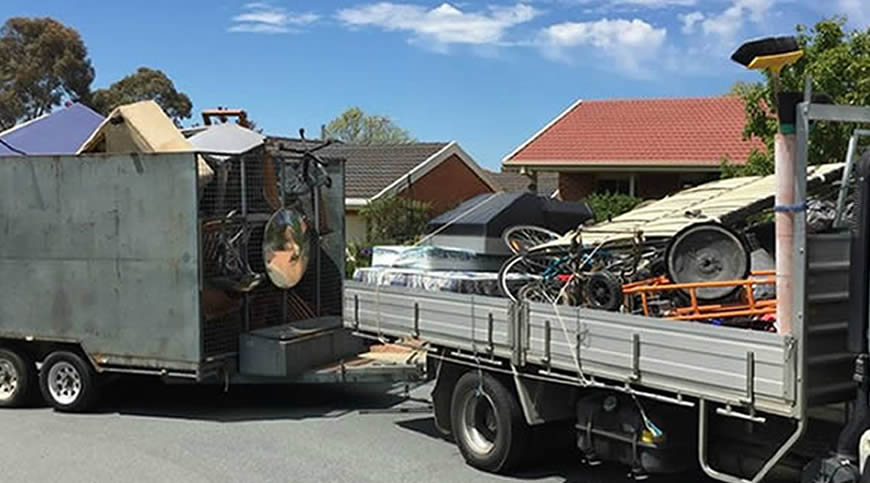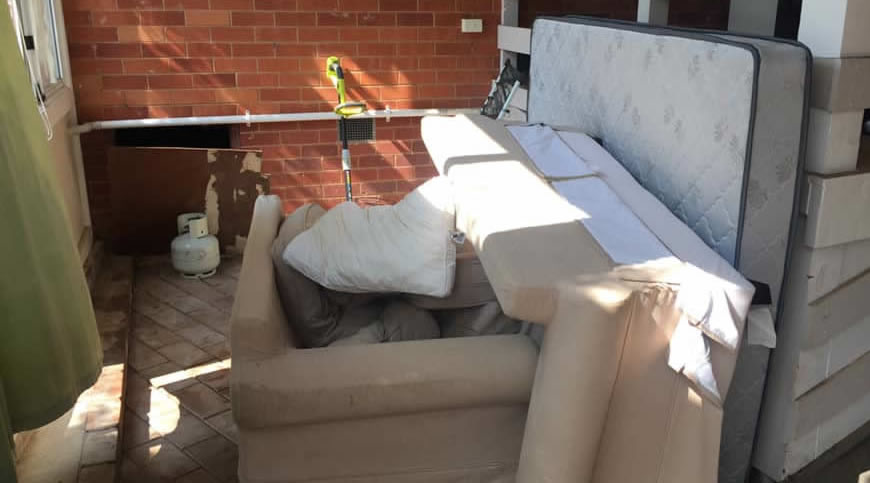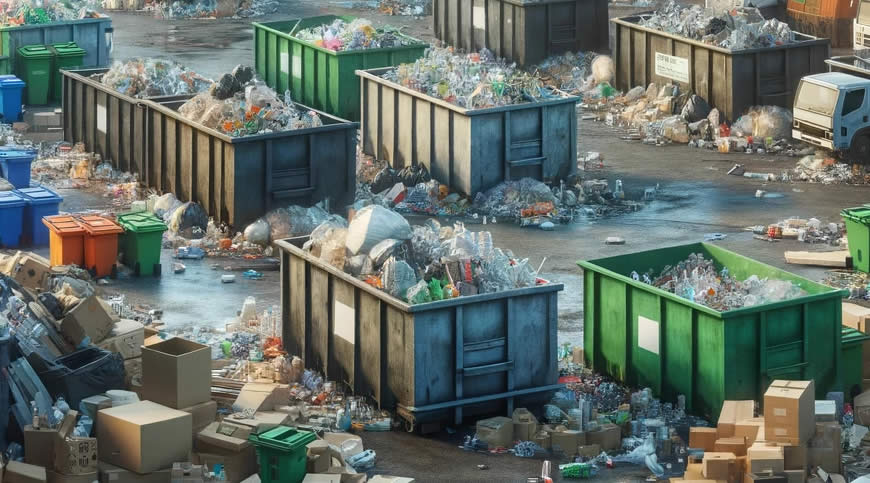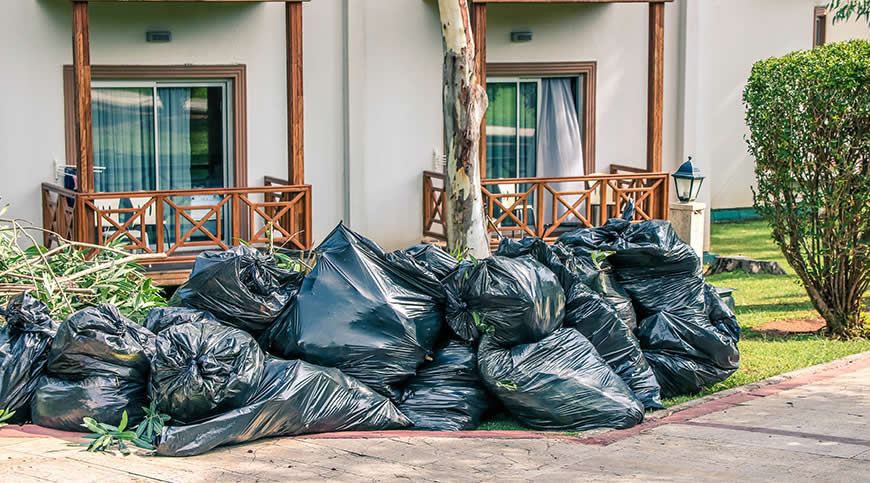
It's time to get our hands dirty and dig into the art and science of rubbish removal. Not just any rubbish removal, mind you, but practices that are both efficient and environment-friendly.
If you're tired of the kerbside chaos and want to contribute to a greener Canberra, you've come to the right place. Today, we're going to dive into five key ways to keep your rubbish removal game on point while keeping Mother Nature in mind.
- Know Your Rubbish: It's all about understanding what goes where. Not all rubbish is created equal, and segregating your waste can make a world of difference.
- Recycle Right: It's not just about tossing your recyclables in the right bin, it's about ensuring they're clean and dry. Contaminated recycling can cause more harm than good.
- Compost at Home: Your kitchen scraps are a gold mine for your garden. Composting at home reduces landfill waste and gives your plants a natural, nutrient-rich boost.
- Plan Your Purchases: The less waste you create, the less waste you have to remove. Be conscious of packaging when you shop and aim to minimise your rubbish footprint.
- Use Rubbish Removal Services: Professional services are pros at handling and disposing of waste responsibly. They're a convenient, hassle-free solution to managing your waste.
Remember, rubbish removal isn't just a chore – it's a chance to make a real difference. Each bin, each bag, each piece of rubbish is an opportunity to help build a cleaner, greener Canberra. So let's get to it!
1. Know Your Rubbish
First things first, let's chat about the rubbish we're dealing with. It's like sorting out your wardrobe, but less fun (unless you're a waste enthusiast like us!). Canberra's rubbish falls into three major categories: general waste, recycling, and green waste.
General Waste
This is your typical household rubbish, the stuff that can't be recycled or composted. Think packaging, broken items, and food scraps that don't belong in the green waste bin.
Recycling
Canberra, we've got to chat about your recycling habits. Cardboards, glass jars, cans, and certain plastics belong here. But remember, cleaner is better when it comes to recycling, so give those items a quick rinse before tossing them in.
Green Waste
Finally, let's touch on green waste. This includes garden waste like grass clippings, leaves, and small branches, but it can also include food scraps if your area has a FOGO (Food Organics Garden Organics) collection.
Knowing what type of rubbish you're dealing with is the first step towards efficient and environment-friendly practices. It's all about putting things in their proper place - because there's no such place as 'away' when we throw rubbish away!
2. Recycle Right
Before we embark on a deep dive into the world of recycling, let's get acquainted with the basics. The first principle in the recycle right manifesto is to segregate.
Separating your recyclables from your general waste is the primary step towards efficient rubbish removal. This simple habit can make a world of difference to our environment.
"The journey of a thousand miles begins with a single step." - Lao Tzu
Let's break it down into easily digestible bits. Here's a quick guide to help you segregate your waste effectively:
- Paper and Cardboard: This includes newspapers, magazines, cardboard boxes, and even toilet paper rolls.
- Plastics: Bottle caps, drink bottles, plastic bags, etc. Just ensure they are rinsed and free from food waste.
- Glass: Jars, bottles, and other glass items go in this category. Again, cleanliness is key.
- Metal: Aluminum cans, foil, and other metal items are recyclable. Like plastic and glass, please ensure they are clean.
But wait, there's more to recycling than just segregation. What about items that don't fit neatly into these categories? That's where we resort to our second principle.
Know Your Local Recycling Rules
Every council has its own set of recycling rules and Canberra is no different. To ensure you're recycling right, familiarize yourself with the local guidelines.
Here's a quick snippet of Canberra's recycling do's and don'ts:
|
Do's |
Don'ts |
|
Do recycle clean plastic containers. |
Don't recycle plastic bags and film. These can go in the REDcycle bins at Coles and Woolworths. |
|
Do recycle glass bottles and jars. |
Don't recycle window glass, mirrors, or drinking glasses. |
Now, we're not just recycling smart, we're recycling right. And remember, every bit counts!
3. Compost at Home
Green thumbs, rejoice! Composting at home is not only an eco-friendly rubbish removal strategy, but it's also a clever way to fertilise your garden. It's a win-win situation for the environment and your prized petunias.
Getting Started with Composting
Not sure how to start? No worries! Home composting is easier than you might think. All you need is a compost bin, which you can purchase from any local garden centre or online.
- Step 1: Select a suitable spot in your garden for your compost bin. It should be a place that's easily accessible but not too close to living areas.
- Step 2: Start adding organic waste to your compost bin. This could include fruit and veggie scraps, coffee grounds, tea bags, eggshells, or even yard trimmings.
- Step 3: Make sure to turn your compost regularly. This helps to speed up the composting process and prevents unpleasant odours.
The Do's and Don'ts of Composting
While you can compost most organic waste, there are still some items that should never go into your compost bin. Here's a quick rundown:
|
Do Compost: |
Don't Compost: |
|
Fruit and veggie scraps |
Meat or dairy products |
|
Coffee grounds and tea bags |
Diseased plants |
|
Grass clippings and yard trimmings |
Pet waste |
Remember, composting is a science. It's all about maintaining the right balance of 'green' and 'brown' materials, moisture, and air. If your compost pile is smelly or not decomposing properly, it's likely that one of these elements is out of balance.
With these tips in your toolbox, you're all set to start composting at home. Not only will you be reducing your rubbish footprint, but you'll also be creating nutrient-rich compost for your garden. Now that's what we call a green solution!
4. Plan Your Purchases
Smart Shopping: The First Line of Defence Against Excessive Waste
Whether you're an occasional shopper or a weekly supermarket trekker, your purchasing habits can significantly impact your waste production. It all starts with being a conscious consumer.
"The solution to pollution is not just in the disposal, it's in the decision."
Intentional Food Buying
Buy only what you need, not what you want. Unplanned purchases often end up as waste, especially perishable items like fruits and vegetables.
- Plan your meals: By knowing exactly what ingredients you need for the week’s meals, you can avoid overbuying and reduce food waste.
- Check your pantry: Before you head to the shops, take stock of what you already have at home. You might be surprised to find that you already have what you need.
- Shop with a list: Stay focused and resist impulse purchases by adhering to a shopping list.
The 'Packaging' Predicament
Over-packaged items are not only a waste of resources but also contribute significantly to our rubbish problem. Here's how to navigate the packaging maze:
- Choose loose over packaged: Opt for loose fruits, vegetables, and other items instead of those wrapped in plastic.
- Bring your own bag: Ditch single-use plastic bags and bring your own reusable shopping bags, containers, and jars.
- Support package-free stores: More and more businesses are offering package-free options. Support these initiatives to encourage more businesses to do the same.
In conclusion, we can't control all waste production, but we can significantly reduce it by making smarter purchasing decisions and being aware of our consumption habits.
5. Use Rubbish Removal Services
Imagine this: It's a beautiful Saturday morning in Canberra, and instead of hiking up Mount Ainslie or having a brew at your favourite coffee shop, you're stuck at home sorting through piles of rubbish. Sounds like a nightmare, doesn't it? Well, it doesn't have to be.
The Hassle-Free Solution: Rubbish Removal Services
Enter rubbish removal services, the unsung heroes who swoop in to take care of the mess. These professionals have seen it all, from the mountains of garden waste to the aftermath of a house renovation. They know how to handle it efficiently, and more importantly, responsibly.
The Perks of Professional Removal
- Convenience: No more wasting your weekends. With a call or a click, you can schedule a pick-up and let the pros do the heavy lifting.
- Efficiency: These folks know their way around rubbish. They sort, recycle, and dispose of waste faster than you can say "Canberra's cleanest".
- Eco-Friendly: Rubbish removal services adhere to strict environmental regulations, ensuring your waste won't harm our beloved planet.
Choosing the Right Service
Selecting a rubbish removal service isn't as daunting as it seems. Here's a simple guide to get you started:
|
Factor |
Consideration |
|
Reputation |
Look for online reviews and ask for recommendations from friends. A good reputation speaks volumes. |
|
Price |
Make sure the service fits your budget. BUT, don't sacrifice quality for cost! |
|
Environmental Commitment |
Choose a service that prioritises recycling and sustainability. It's a win for you and for Mother Earth. |
Remember, efficient rubbish removal isn’t just about decluttering—it's also about making responsible choices that contribute to a cleaner, greener Canberra. So go ahead, reclaim your weekends and make a difference. Choose rubbish removal services.


